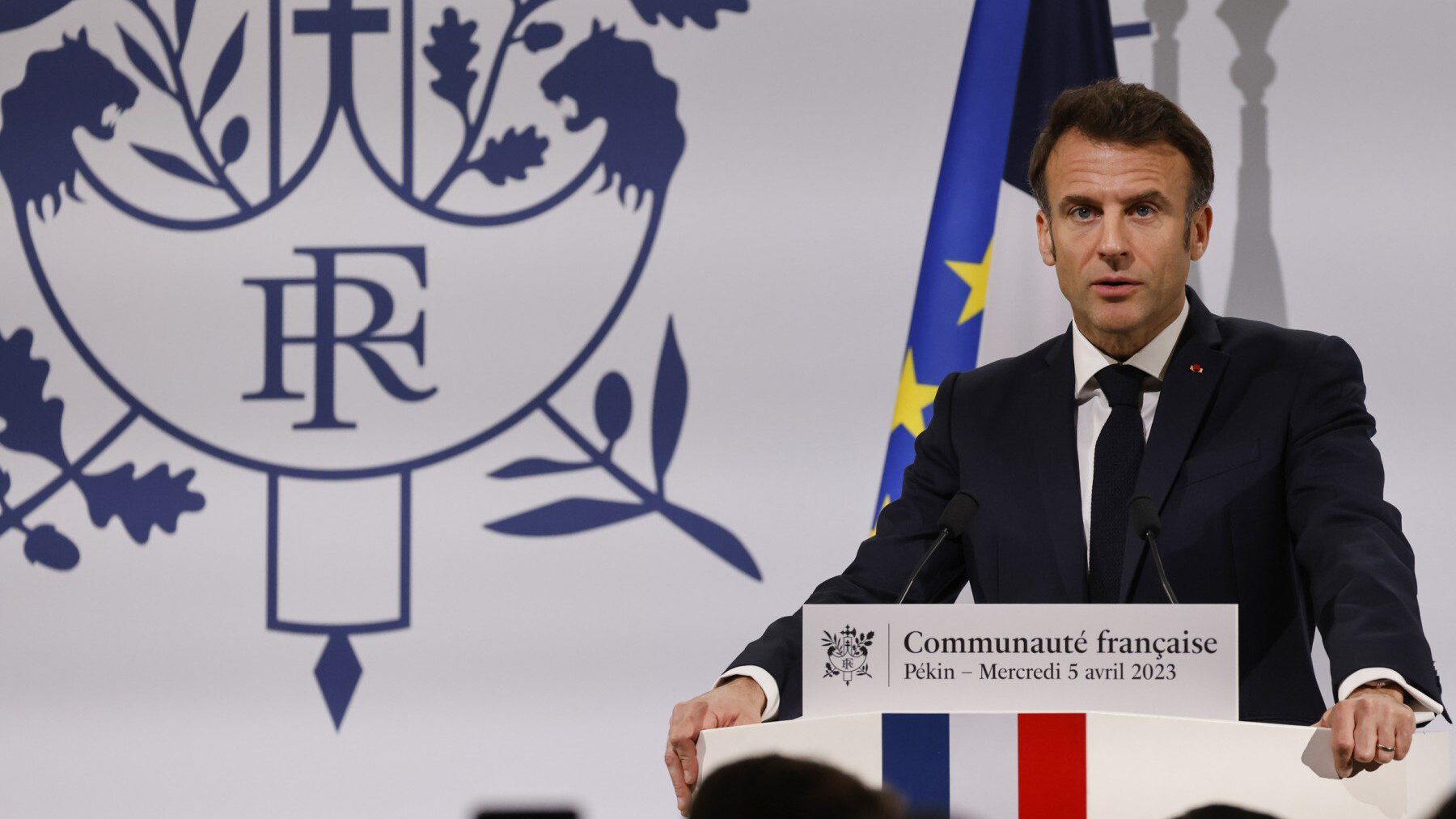
French President Emmanuel Macron speaks during a meeting with China’s French community at the residence of France’s ambassador in Beijing on April 5th, 2023.
Photo: LUDOVIC MARIN / AFP
In Emmanuel Macron’s view, Europe should refrain from decoupling itself from China. Ahead of his Thursday meeting with Chinese President Xi Jinping, the French prime minister noted that the Asian superpower could play an “important role” for peace in Ukraine.
“We must not disconnect, not separate ourselves from China,” Macron stressed on Wednesday, April 5th in Beijing while addressing the French community living in the Chinese capital.
“We hear increasingly loud voices expressing a strong concern about the future of relations between the West and China that in some form lead to the conclusion that there is an inescapable spiral of mounting tensions,” Macron told reporters at the French Embassy in Beijing, where his speech took place.
According to the head of state, that fate is far from determined. Europe must, on the contrary, “commit itself with voluntarism to continue to have a trade relationship with China,” he urged.
Well aware of China’s critical importance to the EU’s economy, for European leaders, the balancing act of keeping in the good graces of both Beijing and Washington is becoming ever more trying.
While the U.S. is taking an increasingly hard line against Beijing, Macron, together with other European leaders such as German Chancellor Olaf Scholz and Spanish Prime Minister Pedro Sánchez (who just returned from his own visit to Beijing), continue to insist on dialogue, so as not to jeopardize trade relations.
Before embarking on his first trip to China since 2019, Macron had spoken to U.S. President Joe Biden, having agreed at least on one point; to “engage” China to “accelerate the end of the war in Ukraine.”
Beijing officially maintains neutrality, having chosen to neither sanction nor condemn Russia’s invasion, while Xi and Putin recently in Moscow highlighted their alliance as being a bulwark against U.S.-led Western hegemony.
The French leader is hopeful that Xi could persuade Russian President Vladimir Putin to start peace negotiations for the conflict in Ukraine. “Precisely because of its close relationship with Russia, China can play an important role” in finding “a path to peace,” Macron argued.
Thus far, such hope remains elusive, as China already presented a peace plan of its own for Ukraine; a plan which Brussels and Washington have looked upon far from favorably, as it would solidify Russia’s territorial gains. Without Washington’s consent especially, little to no progress is then to be expected.
Asked about long-held Western suspicions Beijing might be considering sending arms to Moscow, Macron said any nation that did so would be in breach of international law, adding that it was not in China’s interest “to have a lasting war.”
European Commission President Ursula von der Leyen will join the French leader on Thursday, her first trip to China since being elected more than three years ago.
Last week, she said the EU must “de-risk” ties with Beijing, including limiting Chinese access to sensitive technology while reducing reliance on China for key inputs.
Having come with a 50-strong business delegation in tow, Macron said that such ‘de-risking’ did not mean severing trade ties with China; there is no contradiction in reducing Europe’s dependence on China in strategic sectors such as telecoms and increasing business links in other areas, he specified.
Analysts do not predict any major deals between Paris and Beijing will be signed during the visit, given current sensitivities and as not to flaunt U.S. wishes.
